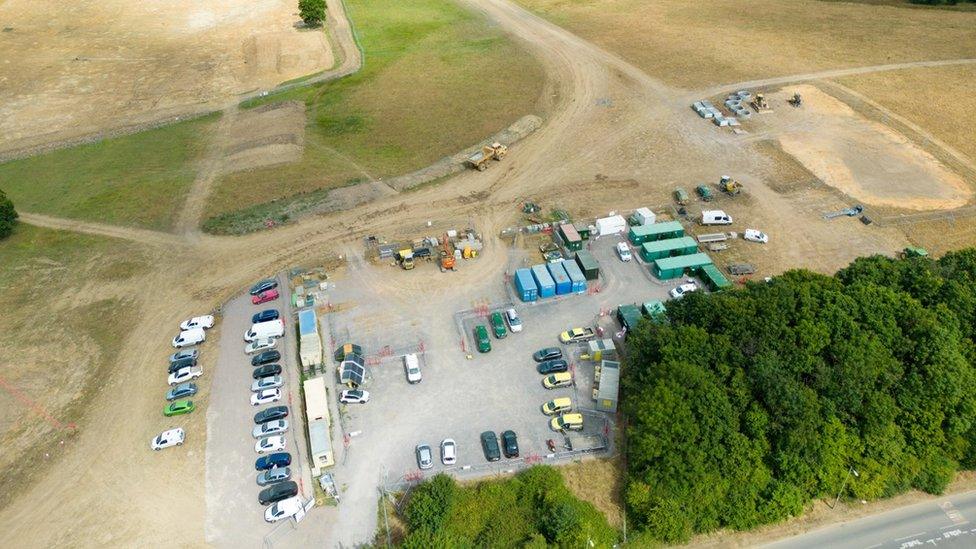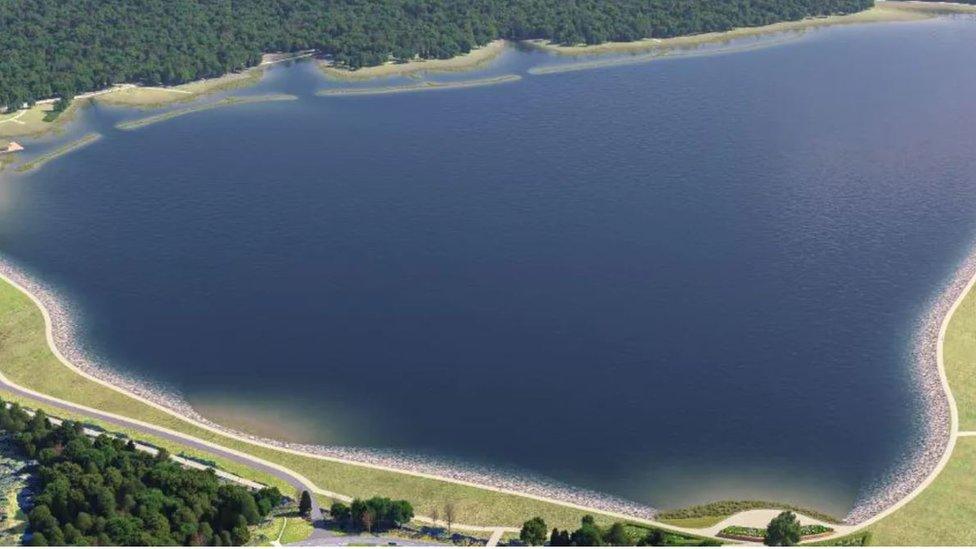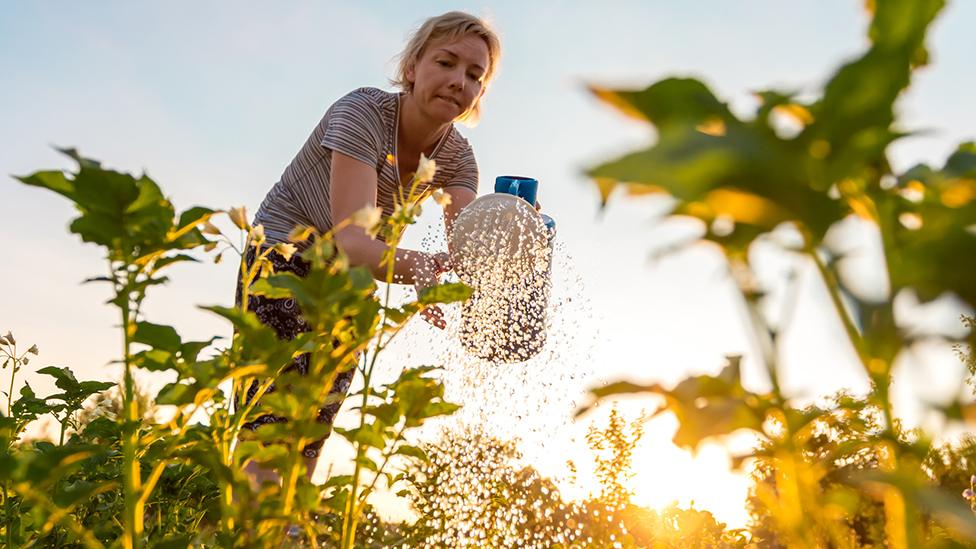Havant: Concerns raised over new recycled water reservoir
- Published

The reservoir would take up to 10 years to fully commission
A proposed new reservoir should be reconsidered after it was revealed it would use recycled water, a council leader has said.
Southern Water was given permission to build the facility, the first in the south east since the 1970s, in Havant, Hampshire, last year.
But Councillor Alex Rennie said using recycled wastewater for consumption "was not made clear" in the plans.
Southern Water has been asked to comment.
Mr Rennie, leader of Havant Borough Council, said it would likely have an impact on public perception of the reservoir, which the company stated in project documents would be "filled with surplus spring water in winter".

Portsmouth Water own the 160-hectare site and the reservoir would hold 8,700 million litres of water
"It is understood that whilst this technology is used widely overseas, this would be the first project of its kind in the UK," he added.
In a letter to Southern Water, Mr Rennie said: "The council fully recognises the importance of addressing the significant and urgent need to address Hampshire's water shortfall and welcomes the efforts being made by Southern Water to address this.
"However, we have serious concerns relating to the use of recycled treatment wastewater as a new water source to top-up the Havant Thicket Reservoir and we are opposed to any such use."
He added it was of the "utmost importance" that the project and the proposal were "correctly scrutinised".
The reservoir would take up to 10 years to fully commission.
Portsmouth Water, which owns the 160-hectare site, said the reservoir would hold 8,700 million litres of water and supply up to 21 million litres each day
Southern Water was the first water company in the UK to announce a hosepipe ban this summer, while Portsmouth Water has not yet needed to impose any restrictions.
The south of England has experienced the driest July since records began in 1836.

Follow BBC South on Facebook, external, Twitter, external, or Instagram, external. Send your story ideas to south.newsonline@bbc.co.uk, external.
Related topics
- Published4 June 2021

- Published22 May 2020

- Published16 June 2023
